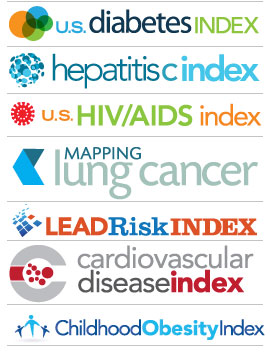Posted by National Health Index
Stroke News
Friday, August 31st, 2012
Jnnp.bmj.com: 8/27/12 Background Chronic stress is associated with cardiovascular diseases, but the link with stroke has not been well established. Stress is influenced by life-style habits, personality type and anxiety levels. We sought to evaluate psycho-physical stress as a risk factor for stroke, while assessing gender influences. Methods Case-control study. Cases: patients (n=150) aged 18–65, admitted consecutively to […]
Posted by National Health Index
Stroke News
Thursday, August 23rd, 2012
American Heart Association: 9/1/12. Metabolic syndrome (MetS), a clustering of risk factors for type 2 diabetes mellitus and cardiovascular disease, has been associated with cognitive dysfunction and brain abnormalities. This review describes the literature on the impact of MetS on brain and cognition and suggests directions for future research. A literature search for reports of MetS […]
Posted by National Health Index
Stroke News
Thursday, August 23rd, 2012
American Heart Association: August 16, 2012 Hypertension is the most important risk factor associated with intracerebral hemorrhage. We explored racial differences in blood pressure (BP) control after intracerebral hemorrhage and assessed predictors of BP control at presentation, 30 days, and 1 year in a prospective cohort study. Methods—Subjects with spontaneous intracerebral hemorrhage were identified from the […]
Posted by National Health Index
Stroke News
Thursday, August 23rd, 2012
Blog.heart.org: 8/16/12 Blacks who survive strokes caused by bleeding in the brain are more likely than whites to have high blood pressure a year later, a new study says. Continued high blood pressure increases their risk of another stroke. The study examined racial and ethnic differences in these strokes, called intracranial hemorrhage or ICH. They make up only 10 percent […]
Posted by National Health Index
Stroke News
Monday, August 20th, 2012
Uq.edu.au: August 13, 2012 A new study from The University of Queensland shows monitoring the brain of stroke patients using Quantitative EEG (QEEG) studies could inform treatments and therefore, minimising brain damage of stroke victims. EEG stands for electroencephalogram and is a medical test which is used to measure the electrical activity of the brain. Dr […]
Posted by National Health Index
Stroke News
Monday, August 20th, 2012
Stroke.ahajournals.org: August 9, 2012. Aging and vascular risk factors contribute to arterial stiffening. Increased arterial stiffness exposes the small vessels in the brain to abnormal flow pulsations and, as such, may contribute to the pathogenesis of cerebral small vessel disease. In a population-based study, we investigated the association between arterial stiffness, as measured by aortic pulse […]
Posted by National Health Index
Stroke News
Monday, August 20th, 2012
Stroke.ahajournals.org: 8/7/12 Patients with cryptogenic ischemic stroke may have undetected paroxysmal atrial fibrillation (PAF). We established the Stroke and Monitoring for PAF in Real Time (SMART) Registry to determine the yield of 30-day outpatient PAF monitoring in cryptogenic ischemic stroke. Methods—The SMART Registry was a 3-year, prospective multicenter registry of 239 patients with cryptogenic ischemic stroke […]
Posted by National Health Index
Stroke News
Monday, August 20th, 2012
Aje.oxfordjournals.org: 7/31/12 There is increasing interest in evaluating the association between specific fine-particle (particles with aerodynamic diameters less than 2.5 µm; PM2.5) constituents and adverse health outcomes rather than focusing solely on the impact of total PM2.5. Because PM2.5 may be related to both constituent concentration and health outcomes, constituents that are more strongly correlated with PM2.5 may […]
Posted by National Health Index
Stroke News
Monday, August 20th, 2012
Thespinejournalonline.com 6/18/12 An exposure group of 2,249 subjects who received spinal fusion surgery during the study period was compared with 2,203 control subjects matched by age, sex, and propensity score. All were followed up for 3 years for all kinds of stroke. Demographics, comorbidities, and nonmeasurable covariates were matched between the two groups. Kaplan-Meier analyses were […]
Posted by National Health Index
Stroke News
Tuesday, August 14th, 2012
http://onlinelibrary.wiley.com. 8/1/12/ There is an increased risk of strokes in pregnancy and puerperium. Intracranial haemorrhage is the rarer of the two stroke subtypes but carries a greater morbidity and mortality for both the mother and the child. This review highlights the causes of pregnancy-related intracranial haemorrhage and its management. The incidence varies from region to region […]

